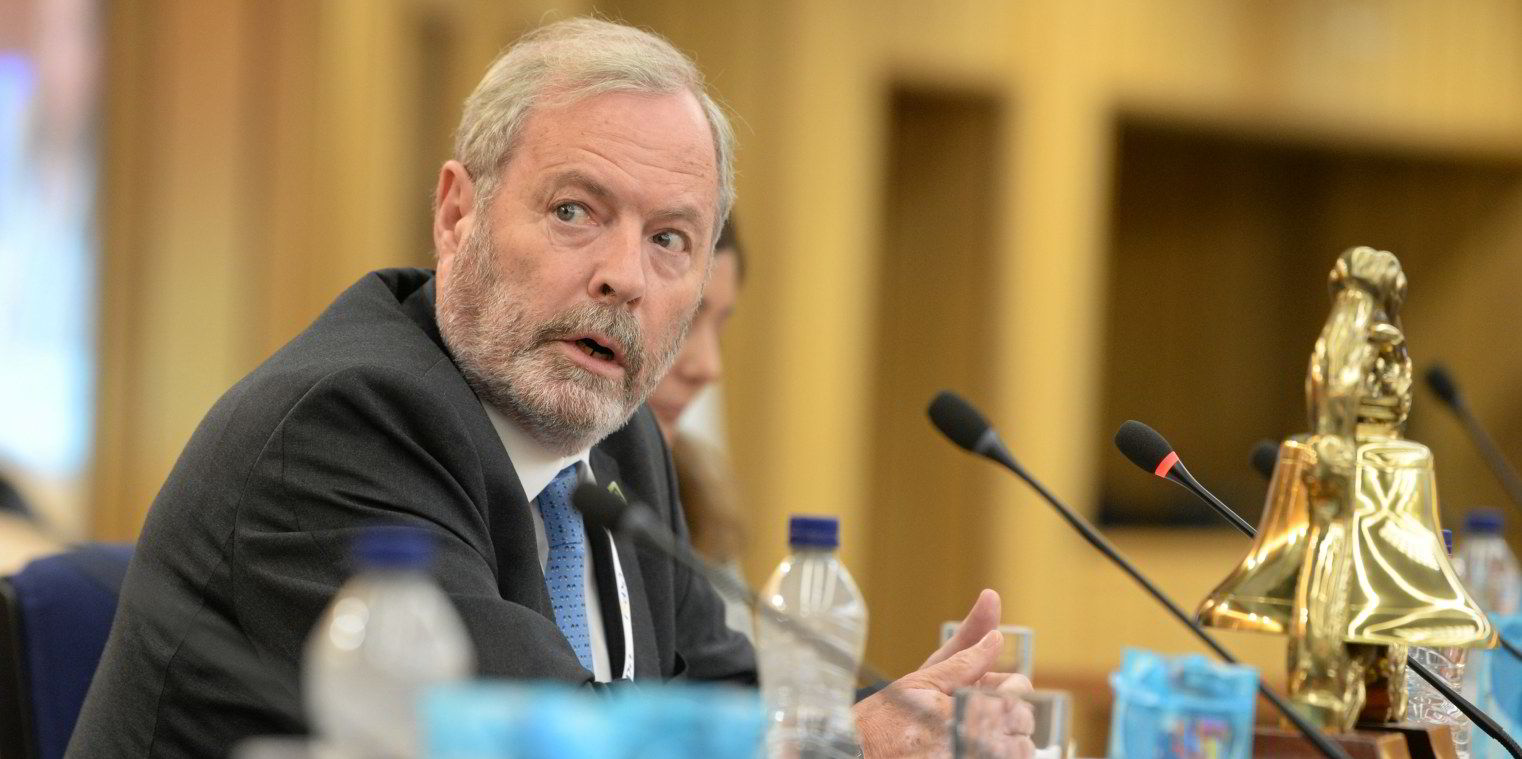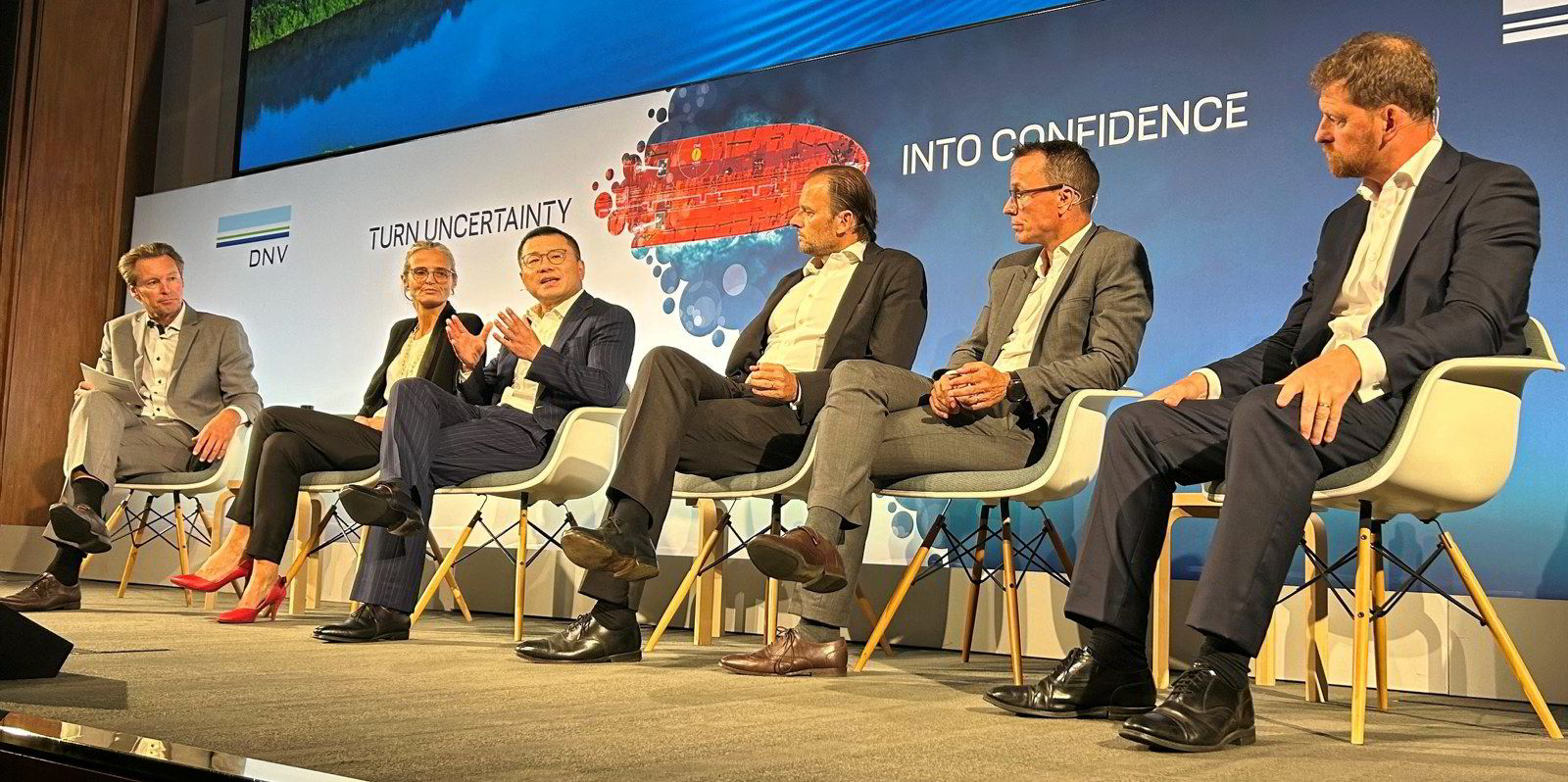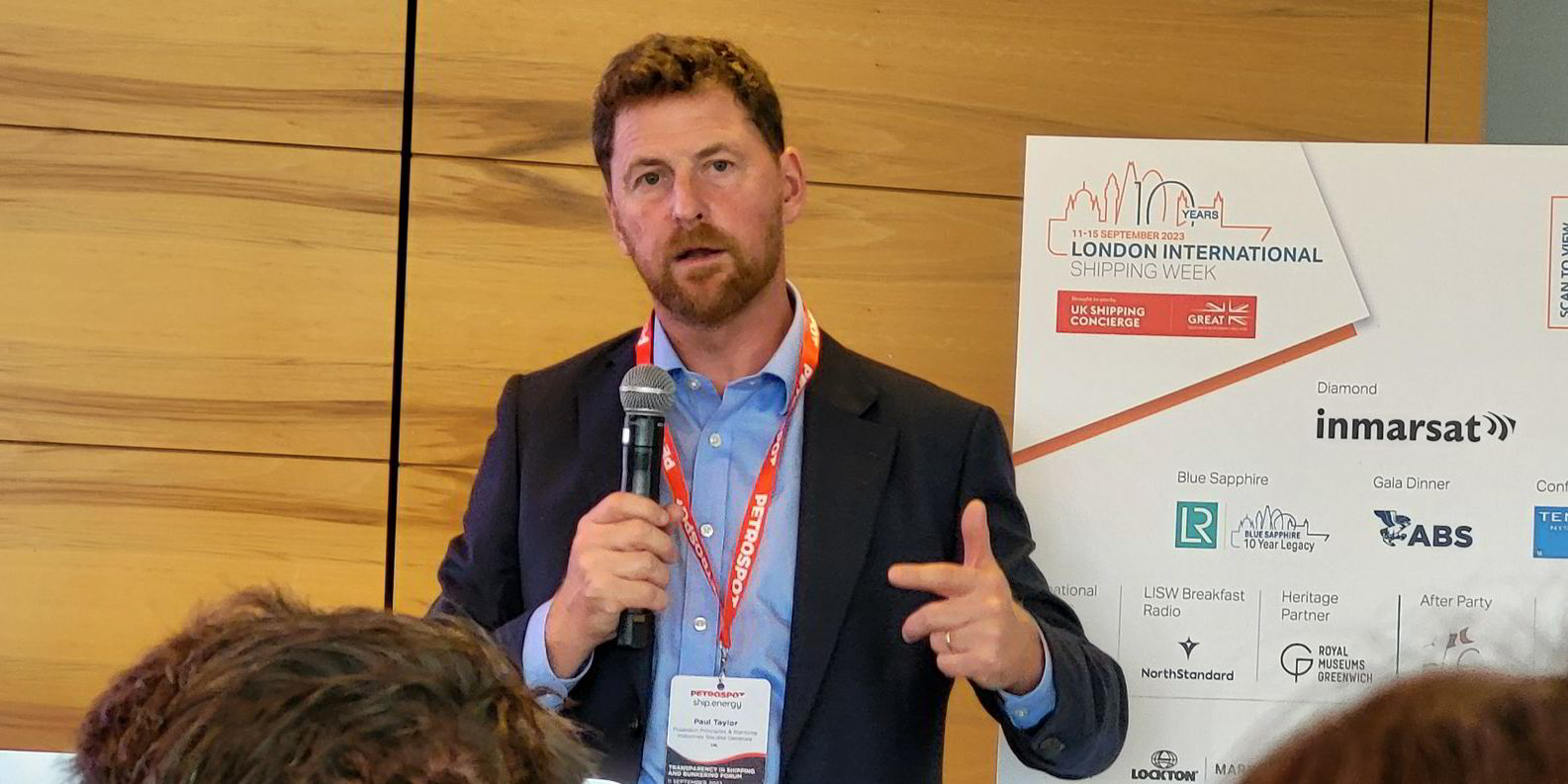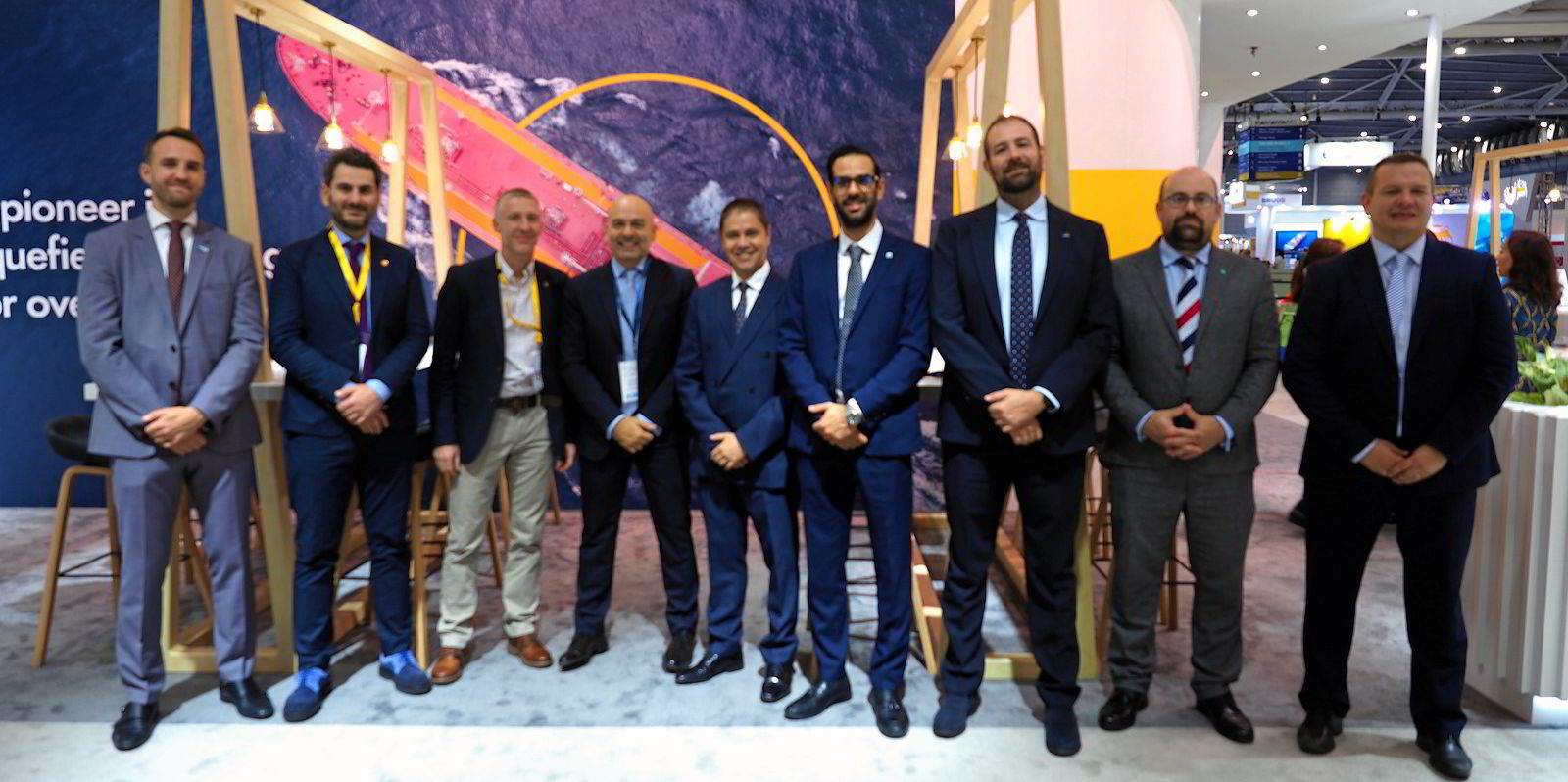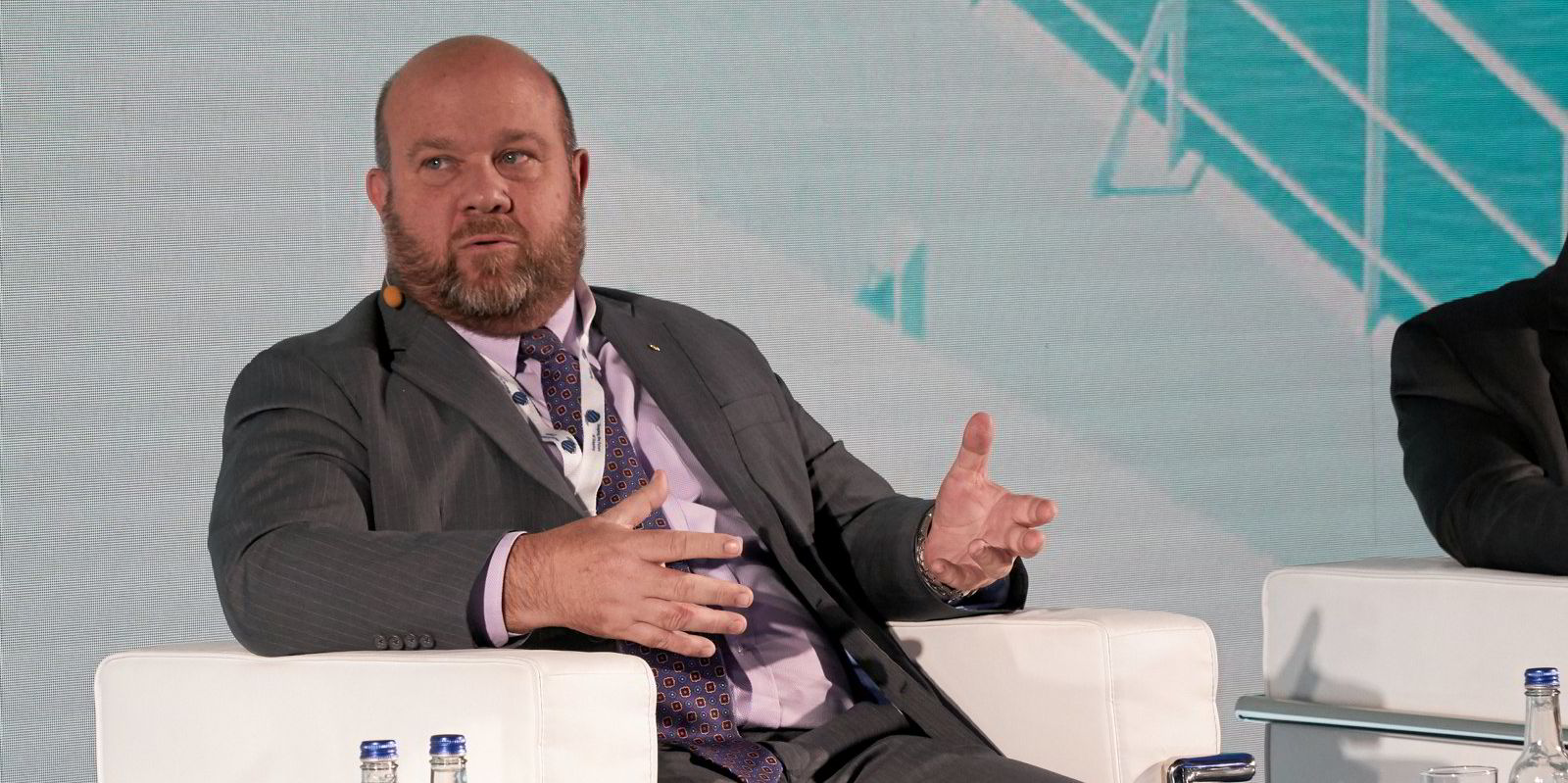Shipping is inching forward on decarbonisation but has yet to hit its stride, speakers on an opening panel at London International Shipping Week’s headline conference said on Wednesday.
In a wide-ranging session at the International Maritime Organization headquarters, Michael Parker — chairman of global shipping, logistics and offshore at Citi — said there is still a lack of belief that the greenhouse gas emissions target that the IMO agreed in July mattered.
“This is real,” he said, although the pace of decarbonisation is going to vary.
“In 10 years, this industry is going to be very different. Finance is going to reward this industry for reducing its emissions but it is not going to throw capital at it speculatively.”
He said the IMO targets are the minimum but there is a need to aspire to a higher level.
“The risk of climate change and the importance of decarbonising global trade is in the hands of this industry,” he said.
Karrie Trauth, senior vice president and global head of shipping and maritime at Shell, said: “Yes we are moving forward. Are we moving forward at a quick enough pace? Probably not yet.”
But she added that there are many small steps in play and it takes collaboration between companies and governments to put that framework in place.
Trauth said the space on decarbonisation is around collaboration between companies.
She referenced the HySTRA initiative in Japan to build a pilot hydrogen carrier, shipping’s key role in carbon capture and storage.
Trauth said there are examples where companies are moving alone referencing that more than 10 companies at the Gastech event in Singapore last week were doing trials of onboard carbon capture and storage.
Going modular
The energy major’s shipping chief also revealed that Shell, ABS and Wartsila have been working with Hudong-Zhonghua Shipbuilding (Group) on the design of a modular ship that can be upgraded over time in a planned way towards a net-zero emission vessel.
Andrew Cutler, chief executive of Britannia P&I and chair of the International Group of P&I Clubs, said the challenge for shipowners on decarbonisation is where to find the money.
Cutler said: “I’m not convinced the buyers will pay for it.”
Parker said the money is there but it is going to do is go into those things that measure progress.
“It will be about incremental progress,” he said.
“The IMO has challenged the industry to achieve ambitious targets that the people with the money and the technology will respond to.”
Nusrat Ghani, UK minister of state at the Department for Business and Trade, said she believes artificial intelligence is going to change the dynamic around decarbonisation as it will allow for the collection of data that will show which country or corporation is really doing what they signed up to do.
Fuel choice
In a discussion that also touched on geopolitics, sanctions and compliance, European Centre for Energy & Geopolitical Analysis founder Yana Popkostova said oil and gas are not going to disappear. But she said its utilisation and the routing of those fuels will change.
Popkostova said the amount of demand for coal oil and gas is going to decrease, then consolidate and, after this, the trade routes will change. She said LNG demand will rise and then fall from the mid-2030s.
Asked about when Shell might look at alternative fuels such as ammonia, Trauth said it comes down to seeing that demand and having a line of sight to its supply.
She said ammonia and methanol are not yet meaningfully globally traded energy commodities and will require the development of fuel infrastructure.
“This is a huge chicken and egg question,” she said.
Trauth said the green corridors and green hubs initiatives can help, adding that it is first about building a framework in which it can work in ports.
She said it is about recognising that any fuel choice we make for shipping is really going to come on the back of a low or zero-carbon fuel choice for the global energy system.
“Shipping isn’t going to get to choose in many locations and in many ways what our future fuel is, it is going to be driven by global trade,” Trauth said.
